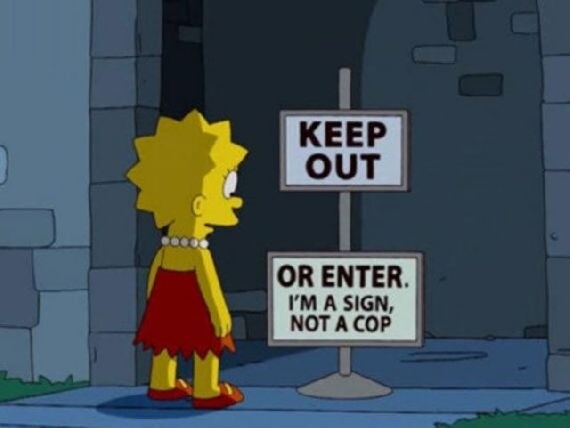Follow Up to

Berkowitz v Invaleon Techs Corp In re Rowley Solar LLC BAP 1st Cir 2023
As a quick follow up to our June 2, 2023 post about our 1st Circuit B.A.P. case, Rowley Solar, LLC/ Berkowitz and Maven Revocable Trust vs. Invaleon Technologies Corporation. MA Bankruptcy No. 19-12419-FJB, No. MB 22-016, here’s the written decision.
In this appeal, the Berkowitzes challenge the bankruptcy court’s factual finding that Invaleon did not agree to stay off the Property, stating there was “substantial” evidence in the record that such a promise was made. They also challenge the bankruptcy court’s finding that they did not reasonably rely on promises made by Invaleon, insisting their reliance was “reasonable” because the “main reason for the [Settlement Agreement] . . . was to be rid of” Invaleon.
Invaleon counters that, other than Bonni Berkowitz’s own testimony, the record is devoid of any evidence demonstrating that Invaleon promised or agreed to not enter the project site ever again for any reason.
While this appeal was pending, the bankruptcy court dismissed Rowley Solar’s bankruptcy case for cause under § 1112(b)(4). Neither party has raised any mootness issues arising from the dismissal.
This appeal was filed jointly by Bonni Berkowitz, Barbara Berkowitz, and Maven Trust. The Claims Order, however, disallowed only the Berkowitzes’ claims. Because the Claims Order overruled Invaleon’s objection to Maven Trust’s claim and allowed that claim in its entirety, and as there is nothing in the record to suggest that the disallowance of the Berkowitzes’ claims caused any direct, pecuniary harm to Maven Trust, we conclude that Maven Trust was not aggrieved by the Claims Order and thus lacks standing to appeal. See In re El San Juan Hotel, 809 F.2d 151, 154 (1st Cir. 1987) (stating that standing to appeal from a final bankruptcy court order is accorded only to “‘persons aggrieved,’ i.e., to those persons whose rights or interests are ‘directly and adversely affected pecuniarily’ by the order”) (citations omitted); see also Elkin v. Metro. Prop. & Cas. Ins. Co. (In re Shkolnikov), 470 F.3d 22, 24 (1st Cir. 2006) (“It is an abecedarian rule that a party cannot prosecute an appeal from a judgment in its favor.”) (citations omitted). This appeal is, therefore, dismissed as to Maven Trust for lack of standing.
Although not raised by the parties, we also consider whether the dismissal of the underlying bankruptcy case raises any mootness concerns, as mootness also will “deprive us of jurisdiction.” See La Trinidad Elderly LP SE v. Loíza Ponce Holdings LLC (In re La Trinidad Elderly LP SE), 627 B.R. 779, 794 (B.A.P. 1st Cir. 2021) (quoting Melo v. GMAC Mortg., LLC (In re Melo), 496 B.R. 253, 256 (B.A.P. 1st Cir. 2013)).
“Mootness is a jurisdictional defect, rooted in Article III case or controversy considerations.” Horizon Bank & Tr. Co. v. Massachusetts, 391F.3d 48, 53 (1st Cir. 2004).
- The Legal Framework Governing the Filing and Allowance of Claims
“Sections 501 and 502 govern the filing and allowance of creditor claims in bankruptcy proceedings.” Am. Express Bank, FSB v. Askenaizer (In re Plourde), 418 B.R. 495, 502 (B.A.P. 1st Cir. 2009) (citing Travelers Cas. & Sur. Co. of Am. v. Pac. Gas & Elec. Co., 549 U.S. 443 (2007)). Section 501(a) allows a creditor to assert a claim in a bankruptcy case by filing a proof of claim. 11 U.S.C. § 502(a). “When a proof of claim is filed under [§] 501, the claim ‘is deemed allowed, unless a party in interest . . . objects.'” In re Russell, No. 22-10083, 2023 WL 320983, at *1 (Bankr. D. Me. Jan. 19, 2023) (quoting 11 U.S.C. § 502(a)). “But even where a party in interest objects, the court ‘shall allow’ the claim ‘except to the extent that’ the claim implicates any of the nine exceptions enumerated in § 502(b).” Travelers, 549 U.S. at 449 (quoting 11 U.S.C. § 502(b)). “The first of those nine exceptions provides that a claim is not to be allowed if it is ‘unenforceable against the debtor and property of the debtor, under any agreement or applicable law for a reason other than because such claim is contingent or unmatured[.]'” In re Russell, 2023 WL 320983, at *1 (quoting 11 U.S.C. § 502(b)(1)). “The Supreme Court has recognized the statutory presumption that ‘claims enforceable under applicable state law will be allowed in bankruptcy unless they are expressly disallowed’ under [§] 502(b).” Id. (quoting Travelers, 549 U.S. at 452).
“Sections 501 and 502 are complemented by Fed.R.Bankr.P. 3001, which provides ‘the procedural framework for the filing and allowance of claims’ . . . .” Id. at *2 (quoting In re Plourde, 418 B.R. at 503). Bankruptcy Rule 3001(f) states that a properly executed proof of claim “shall constitute prima facie evidence of the validity and amount of the claim.” Fed.R.Bankr.P. 3001(f). “Once presumptive validity is established, the burden rests on the [objecting party] to refute the validity or the amount of the claim with ‘substantial evidence.'” In re Russell, 2023 WL 320983, at *2 (quoting Juniper Dev. Grp. v. Kahn (In re Hemingway Transp., Inc.), 993 F.2d 915, 925 (1st Cir. 1993)). If the objecting party produces “substantial evidence” in opposing a proof of claim, “[t]he burden then shifts to the claimant to prove his or her claims by a preponderance of the evidence.” Iatrou v. Darr (In re Iatrou), No. 20-40112-DPW, 2022 WL 220323, at *7 (D. Mass. Jan. 25, 2022) (citation omitted).
In evaluating whether the bankruptcy court erred in disallowing the Berkowitzes’ claims, we must consider whether it erroneously rejected their challenges to the enforceability of the Settlement Agreement based on fraud in the inducement and breach of contract.
- The Bankruptcy Court Did Not Err in Rejecting the Berkowitzes’ Fraud in the Inducement Defense
To determine whether the Settlement Agreement was enforceable against the Berkowitzes, we look to applicable state law principles regarding the formation and validity of contracts. See Butner v. United States, 440 U.S. 48, 54 (1979) (“Congress has generally left the determination of property rights in the assets of a bankrupt’s estate to state law.”). Although the Settlement Agreement does not contain a choice of law provision, there is no dispute that Massachusetts law applies. We turn, therefore, to Massachusetts contract law.
- Basic Principles of Massachusetts Contract Law
In Massachusetts, “[a]bsent an ambiguity, the court interprets a contract according to its plain terms, in a manner that gives reasonable effect to each of its provisions.” Weiss v. DHL Express, Inc., 718 F.3d 39, 45 (1st Cir. 2013) (citations and internal quotation marks omitted). Here, the plain terms of the Settlement Agreement included a release of the Berkowitzes’ claims against the bankruptcy estate and did not contain a provision that Invaleon would refrain from entering the project site again. Instead, the Berkowitzes argue that the Settlement Agreement was invalid because they were fraudulently induced to enter it by a verbal promise by Wu, on behalf of Invaleon, during contract negotiations.
B. Fraud in the Inducement
Fraud in the inducement “concern[s] the validity of the formation of the contract . . . .” Berwind Prop. Grp. Inc. v. Env’t Mgmt. Grp., Inc., No. 04-11411-NMG, 2007 WL 4707647, at *3 (D. Mass. Feb. 5, 2007) (applying Massachusetts contract law). If the Berkowitzes were fraudulently induced to enter into the Settlement Agreement, then it was voidable, and they were not bound by its terms. See id. (stating that “contracts induced by fraudulent misrepresentations . . . are voidable at the election of the party who justifiably relied on the misrepresentations”) (citation omitted); see also Griffin v. Coghill, No. 17-cv-11619-IT, 2018 WL 1122361, at *7 (D. Mass. Mar. 1, 2018) (“A party who has been fraudulently induced by the defendant into entering a contract can rescind that contract.”) (citing Shaw’s Supermarkets, Inc. v. Delgiacco, 575 N.E.2d 1115, 1117 (Mass. 1991)).
In Massachusetts, the elements required to prove fraud in the inducement are:
(1) “misrepresentation of a material fact”; (2) “made to induce action”; and (3) “reasonable reliance on the false statement to the detriment of the person relying.” Com. Bank & Tr. Co. v. Hayeck, 709 N.E.2d 1122, 1126 (Mass. App. Ct. 1999) (citation omitted).
- Misrepresentation of a Material Fact
As to the first element-misrepresentation of a material fact-the Berkowitzes argue that Wu made a fraudulent promise during contract negotiations that Invaleon would refrain from entering the project site again.[2]
- Promise of Future Conduct “Massachusetts law clearly states that statements of present intention as to future conduct may be the basis for a fraud action if . . . the statements misrepresent the actual intention of the speaker and were relied upon by the recipient to his damage.” McEvoy Travel Bureau, Inc. v. Norton Co., 563 N.E.2d 188, 192 (Mass. 1990) (citations omitted). Therefore, “for a promise [regarding future conduct] to constitute fraud in the inducement, the promisor must intend not to carry out the promise and this intent must exist at the time the promise is made.” Coastal Energy, Inc. v. R.W. Granger & Sons, Inc., No. 96-1019, 1998 WL 1184106, at *3 (Mass. Super. Ct. Jan. 28, 1998) (citing McCartin v. Westlake, 630 N.E.2d 283, 289 n.11 (Mass. App. Ct. 1994)). “Mere evidence that a promise was not performed is insufficient to prove intent.” Michelle Holdings, LLC v. Johnston, No. 19-P1444, 2021 WL 117119, at *3 (Mass. App. Ct. Jan. 13, 2021) (citations omitted).
- Review of the Record
To demonstrate the existence of Wu’s alleged promise to stay off the project site, the Berkowitzes point to two provisions of the Settlement Agreement-one which prohibited Invaleon from bidding at the sale of Rowley Solar’s assets and another providing that, in the event Invaleon became the owner of the solar array by default, the parties would employ a third-party manager to operate the solar farm “such that neither [Invaleon] nor any of its employees shall be present . . . on the premises.” While these provisions are consistent with, and clearly reflect, the Berkowitzes’ well-documented desire that Invaleon have no future involvement in the operation of the solar project, they do not constitute an express promise or agreement by Invaleon to not enter the project site ever again for any reason. We agree with the bankruptcy court that the Settlement Agreement is, on its face, devoid of such a promise or agreement.
The Berkowitzes also highlight Bonni Berkowitz’s testimony as evidence that the parties agreed Invaleon would refrain from entering the project site. Specifically, they point to Bonni’s testimony that the Berkowitzes rejected Invaleon’s first proposal to pay the monies owed under the MIPA to continue to operate the solar project, because they “did not want [Invaleon] on [thei]r property ever again.” Bonni explained that they essentially forfeited the $656,000 they were owed under the MIPA “to get rid of Invaleon.” The Berkowitzes also point to Bonni’stestimony that the parties “discussed” the “notrespass order, that [Invaleon] would never be involved with the project . . . or step on the property again.” Bonni’s testimony is compelling evidence of the Berkowitzes’ desire that Invaleon have no further involvement in the solar project. However, discussing a potential contract term is not the same as agreeing upon the term. There is no testimony in the record, by Bonni or anyone else, that the parties actually negotiated, or that Invaleon actually agreed to, a contract term not contained in the written Settlement Agreement that Invaleon would not enter the project site again for any reason. Noticeably absent from the witness list was Attorney Edmond Ford, who represented the Berkowitzes during the contract negotiations. Although both Bonni and Wu testified that all communications and proposals between the parties were exclusively presented through their attorneys, the Berkowitzes did not introduce testimony from Attorney Ford that the alleged term was actually negotiated by the parties and agreed upon by Invaleon.
Nor is there any other evidence in the record to corroborate the Berkowitzes’ claims that such a promise was made. Nothing Wu stated at trial or at his deposition could reasonably be interpreted as establishing an absolute promise or agreement to never enter the project site again for any reason. Wu was asked many times whether he “understood” that the Berkowitzes did not want Invaleon on the project site again, and he agreed that was the “overarching theme” of the negotiations. But he never stated that he promised or agreed Invaleon would not enter the site again under any circumstances. Further, even if the record demonstrated that Wu had made such a promise, the Berkowitzes still could not satisfy the misrepresentation element of their fraud in the inducement defense as there was no evidence that Wu did not intend to honor such a promise at the time it was made. See McMillen v. Kadis (In re McMillen), 390 B.R. 1, 8 (Bankr. D. Mass. 2008) (concluding there was no fraud in the inducement where evidence failed to show the promisor did not intend to honor his promise to pay at the time the promise was made). Again, mere nonperformance is insufficient to establish such an intent. See Michelle Holdings, LLC, 2021 WL 117119, at *3.
- No Reversible Error
That the Berkowitzes wanted no further involvement with Invaleon is clear-so much so that they were willing to forego the monies owed to them in order to achieve that goal. Even if we might have weighed the evidence differently, however, the bankruptcy court’s finding that there was no binding promise or agreement by Invaleon to stay off the Property in the future was “plausible” based on the entire record before the bankruptcy court. See Devila Vicenty v. San Miguel Sandoval (In re San Miguel Sandoval), 327 B.R. 493, 505-06 (B.A.P. 1st Cir. 2005). Affording the bankruptcy court the “due deference” to which it is entitled when weighing the evidence, see Fed.R.Civ.P. 52(a)(6), we are not “left with the definite and firm conviction that a mistake has been committed.” U.S. Gypsum Co., 333 U.S. at 395. We discern no error in the bankruptcy court’s determination that an essential element of fraudulent inducement-a false statement of material fact-was lacking. Because the Berkowitzes’ fraudulent inducement claim falters on the first element, we need not address their arguments regarding reasonable reliance. See Hayeck, 709 N.E.2d at 1126 (requiring all elements to be established to prevail on fraud in the inducement defense).
III. The Bankruptcy Court Did Not Err in Rejecting the Berkowitzes’ Breach of Contract Claim
We turn now to the Berkowitzes’ alternative claim that Invaleon breached the Settlement Agreement by entering the project site after the sale and that they were entitled to damages in the amount of their claims for that breach.
To prevail on a claim for breach of contract under Massachusetts law, the plaintiff must demonstrate that: (1) “there was an agreement between the parties”; (2) “the agreement was supported by consideration”; (3) “the plaintiff was ready, willing, and able to perform his or her part of the contract”; (4) “the defendant committed a breach of the contract”; and (5) “the plaintiff suffered harm as a result.” Bulwer v. Mount Auburn Hosp., 46 N.E.3d 24, 39 (Mass. 2016). “An agreement is breached when a party to the agreement, without legal excuse, fails to comply with a material term of the agreement.” Amcel Corp. v. Int’l Exec. Sales, Inc., No. 93-11128-RCL, 1997 U.S. Dist. LEXIS 23543, at *23 (D. Mass. Sep. 26, 1997) (citing Realty Developing Co. v. Wakefield Ready-Mix Concrete Co., 100 N.E.2d 28, 30 (Mass. 1951)).
The Berkowitzes’ breach of contract claim was based on an alleged agreement between the parties that Invaleon would never enter the project site again under any circumstances. As stated previously, it is undisputed that the Settlement Agreement contains no such provision. Further, the bankruptcy court found that no verbal agreement between the parties was made during contract negotiations. Having concluded that this finding was not clearly erroneous, it necessarily follows that the bankruptcy court did not err in ruling that, in the absence of such an agreement between the parties, there was no breach of a material term. Because the Berkowitzes did not establish an agreement to refrain from entering the project site, let alone any breach of a material contract term by Invaleon, they were not entitled to damages, and the bankruptcy court did not err in disallowing their claims.
In sum, because the bankruptcy court correctly rejected both the Berkowitzes’ fraud in the inducement defense and breach of contract claim, we conclude that the bankruptcy court did not commit reversible error in disallowing the Berkowitzes’ claims.
For the reasons discussed above, we DISMISS Maven Trust’s appeal for lack of standing. As to the Berkowitzes’ appeal, we conclude that they have not shown the bankruptcy court’s disallowance of their claims to be a result of a clearly erroneous factual finding or an error of law. Therefore, we AFFIRM the Claims Order to the extent that it disallowed the Berkowitzes’ claims.





